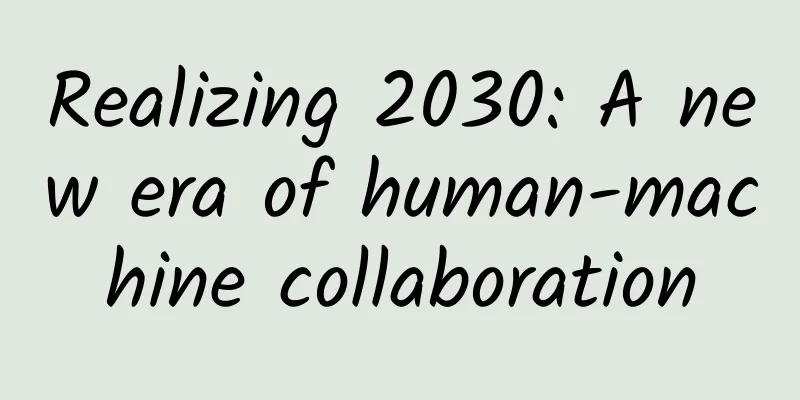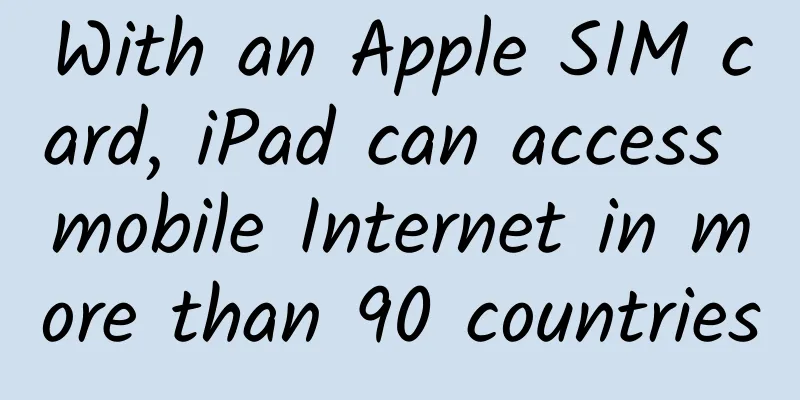Realizing 2030: A new era of human-machine collaboration

|
Dell Technologies released a report titled "A New Era of Human-Machine Collaboration" showing that in 2030, all companies will become technology companies. Therefore, companies must start thinking about how to transform infrastructure and productivity from now on to prepare for the future. This study was organized by the Institute for the Future (IFTF), and invited 20 experts from technology, academia and business fields from all over the world to discuss how emerging technologies such as artificial intelligence, robots, virtual reality, augmented reality and cloud computing will change the way we live and work in the next decade. The report also provides in-depth insights into how consumers and companies can prepare for this changing society. According to the report, as software, big data and data processing capabilities make great progress, emerging technologies based on these basic capabilities will subvert people's lives. The relationship between society and machines will enter a new stage, which will be characterized by: Higher efficiency and more possibilities help humans transcend their limitations. Humans will become "digital commanders" and technology will become an extension of humans, better guiding and managing our daily activities. With leading data matching technology, companies can find and hire the right talent around the world. People must master the skills of "on-the-fly learning". Rapid changes will give rise to new industries, and people will need to learn new skills quickly to continue to survive and develop. Dell Digital Transformation Index shows that 52% of senior decision makers from 16 countries around the world said that their industry has experienced huge disruption caused by digital technology. Nearly half of the companies believe that they may be eliminated in the next 3-5 years. Jeremy Burton, Dell’s chief marketing officer, said: “The industry has never experienced such a major disruption. The pace of change is so real that we have reached a ‘do or die’ moment. To make a leap in the era of human-machine collaboration, companies need to transform into digital companies with software at their core. However, companies must act quickly to build machine capabilities, prepare their infrastructure and enhance the capabilities of their employees to adapt to this change as soon as possible.” Rachel Maguire, research director at the Institute for the Future, said: “We are faced with two extreme views on machines and the future: people are anxious about technology causing job losses or optimistic views that technology is a panacea for all social and environmental problems. Instead, we need to focus on the new characteristics of the relationship between technology and humans, and how we can prepare accordingly. If our efforts in human-machine collaboration are successful, their impact on society will benefit everyone. Other highlights from the report include: In 2030, human dependence on technology will evolve into a true human-machine partnership. Human strengths in creativity, passion, entrepreneurial thinking, etc. will complement the capabilities of machines in speed, automation, and efficiency, which will greatly improve productivity and bring new opportunities to all walks of life and all kinds of positions. Technology will not necessarily replace workers, but the process of finding a job will change. Work will no longer be a fixed location, but will be broken down into a series of tasks. Machine learning technology makes individual skills and abilities searchable, and companies can match the most suitable talents for different tasks. 85% of the jobs expected in 2030 have not yet been created. The pace of change is so rapid that people will need to learn “on the go” using emerging technologies such as augmented reality and virtual reality. The ability to acquire new knowledge will be more valuable than the knowledge itself. You can join our small circle by downloading the PDF version. 199IT thanks you for your support! |
>>: Ericsson: 2017 Survey Report on the Impact of VR/AR on Daily Life
Recommend
How does APP choose marketing and promotion channels?
Q: How to choose marketing promotion channels ? A...
"2019 China Automobile Product Quality Performance Study" deeply analyzes the overall quality performance and trends of domestic mainstream automobile products
In order to solve consumer pain points, help OEMs...
WeChat launches a new round of ban on Alibaba Group
The conflict between Alibaba and Tencent has esca...
All of them are "big oil absorbers"! These 5 types of vegetarian food can make you grow fatter than meat dishes
This article was reviewed by Zhang Zhaomin, Maste...
Taobao operation: How to use Weitao to improve conversion rate?
Since Taobao was redesigned and the Weitao sectio...
New Toutiao traffic strategy
Recently I found that some friends wanted to attr...
What happened in the three years since Weibo went public? What has Weibo changed?
Weibo was officially listed in the United States ...
The flames emitted by rockets are over 3000℃, how come they don't burn themselves? They have ways to cool down
Relying on the high-temperature flame ejected fro...
Why are Huawei and Alibaba employees boycotted for switching to Microsoft? What is the specific situation?
Why are Huawei and Alibaba employees boycotted fo...
The Earth "got angry" and it took 2 million years to recover.
In recent days, the volcano on Hongahaapai Island...
Community operation: How to obtain accurate user groups?
To do community operation, you must learn how to ...
First Principles: What is the Simplest Way of Supreme Wisdom?
First Principles: What is the Simplest Way of Sup...
Why did Jack Ma personally start selling YunOS phones?
With Tencent launching TencentOS and reports that...
Is spacetime pixelated?
Is space-time pixelated? Just like looking at a d...
Android source code advanced in-depth understanding of the working principle of Retrofit
[[422495]] This article is reprinted from the WeC...









